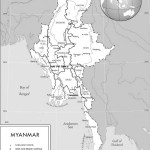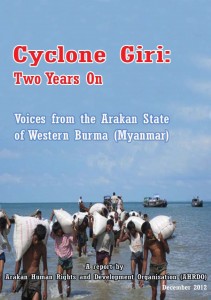Aid (32 found)
A New Dawn for Equitable Growth in Myanmar?: Making the Private Sector Work for Small-Scale Agriculture
A new wave of political reforms have set Myanmar on a road to unprecedented economic expansion, but without targeted policy efforts and regulation to level the playing field, the benefits of new investment will filter down to only a few, leaving small-scale farmers – the backbone of the Myanmar economy […]
• • •Too Much, Too Soon? The Dilemma of Foreign Aid to Myanmar/Burma
 At the end of March 2011, Myanmar began an ambitious political transition led by newly elected President Thein Sein. Bold moves in his first year included opening a dialogue with opposition leader Aung San Suu Kyi, suspending construction of the Chinese-fund Myitsone Dam, and abandoning a grossly overvalued exchange rate in favor of a market-determined rate. These moves unleashed a swarm of visitors seeking to support the transition and “make a difference”: prime ministers, foreign ministers, heads of donor agencies and international NGOs, chief executives of multinational corporations, and many others […]
At the end of March 2011, Myanmar began an ambitious political transition led by newly elected President Thein Sein. Bold moves in his first year included opening a dialogue with opposition leader Aung San Suu Kyi, suspending construction of the Chinese-fund Myitsone Dam, and abandoning a grossly overvalued exchange rate in favor of a market-determined rate. These moves unleashed a swarm of visitors seeking to support the transition and “make a difference”: prime ministers, foreign ministers, heads of donor agencies and international NGOs, chief executives of multinational corporations, and many others […]
Visit to Kachin IDP camps: 7 to 24 February 2013
Since the beginning of fighting in Kachin State on June 9th 2011, the Kachin Relief Fund (KRF) has been providing aid direct to IDPs with local actors. The KRF is fulfilling the major gaps using supporters’ donations, while international agencies have been preoccupied with their inability to operate freely in the KIO administrative areas.
The KRF has identified many needy spaces not been covered by the UN relief agencies or the DFID’s funded projects […]
• • •Nay Pyi Taw Accord for Effective Development Cooperation
The Nay Pyi Taw Accord for Effective Development Cooperation was presented to development partners by the Minister of National Planning and Economic Development and approved by acclamation at the First Myanmar Development Cooperation Forum, Nay Pyi Taw, 20th of January 2013. Read the full text of the accord here.
• • •Cyclone Giri: Two Years On
 This report, published on the second anniversary of the cyclone, documents and highlights the situation in Arakan State before, during and after Cyclone Giri […]
This report, published on the second anniversary of the cyclone, documents and highlights the situation in Arakan State before, during and after Cyclone Giri […]
From Persecution to Deprivation: International Donors Neglect 60,000 Displaced Kachin on China-Burma Border
About 60,000 Kachin villagers fleeing Burma Army attacks and persecution, who are sheltering in Kachin-controlled territory along the China-Burma border, have received almost no international aid since conflict broke out in June 2011.
Data compiled from local relief groups shows that international aid agencies, including the UN, have provided only 4% of basic food needs of this displaced population, who have been kept alive almost entirely by private donations from local and overseas compatriots […]
• • •Myanmar in Transition: Opportunities and Challenges
Myanmar, which is emerging from decades of isolation, is poised to accelerate its economic growth on the back of its abundant labor force, rich natural resources, and geographical location. But the country faces many development challenges to achieve strong and inclusive growth […]
• • •Lessons from the Kachin “Development” Experience
Burma’s government is using the promise of development as a key component in its current peace negotiations with armed ethnic organizations, proposing ceasefire first, then development, and finally a national political agreement. This process has been tried before in Kachin State with disastrous consequences
• • •Burma in the Balance: The Role of Foreign Assistance in Supporting Burma’s Democratic Transition
The historic constraints on donor interventions in Burma—whether self-imposed sanctions or regime-imposed barriers—are increasingly giving way to a sense of heightened optimism about the possibilities of working on issues across the development spectrum. But while the terrain appears to be improving, there remain substantial barriers to effective programming beyond the overall pace and scope of political reform […]
• • •Burma Army Attacks Church in Kachin State, Shooting and Torturing Worshippers
Christian Solidarity Worldwide (CSW) has today received a report from sources inside Kachin State, Burma alleging that soldiers from the Burma Army shot at worshippers in a church in Wai Maw Township two days ago […]
• • •
 All posts
All posts